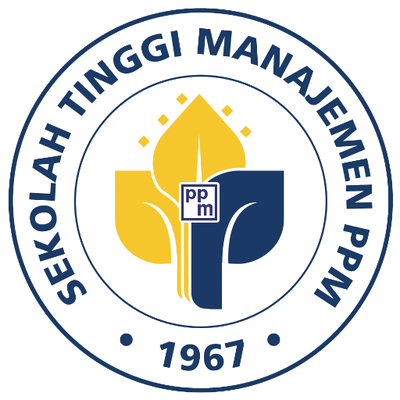Food Consumption Behavior in Bandung Post COVID-19 Pandemic Emergence
Abstract
Keywords
Full Text:
PDFReferences
Ali, S., Khalid, N., Javed, H. M. U., & Islam, D. M. Z. (2021). Consumer adoption of online food delivery ordering (OFDO) services in Pakistan: The impact of the COVID-19 pandemic situation. Journal of Open Innovation: Technology, Market, and Complexity, 7(10), 1–23. https://doi.org/10.3390/joitmc7010010
Ammar, A., Brach, M., Trabelsi, K., Chtourou, H., Boukhris, O., Masmoudi, L., Bouaziz, B., Bentlage, E., How, D., Ahmed, M., Müller, P., Müller, N., Aloui, A., Hammouda, O., Paineiras-Domingos, L. L., Braakman-Jansen, A., Wrede, C., Bastoni, S., Pernambuco, C. S., … ECLB-COVID 19 Consortium. (2020). Effects of COVID-19 home confinement on eating behaviour and physical activity: Results of the ECLB-COVID19 international online survey. Nutrients, 12(6), 1–13. https://doi.org/10.3390/nu12061583
Astuti, M. T. (2018). Strategi komunikasi dalam mempromosikan kota bandung provinsi Jawa Barat sebagai destinasi wisata kuliner. E-Prosiding Pascasarjana ISBI Bandung, 25–44. https://jurnal.isbi.ac.id/index.php/prosidingpasca/article/view/1354
Beard-Knowland, T. (2020). The impact of COVID-19 on how we eat (Issue May). https://www.ipsos.com/sites/default/files/ct/publication/documents/2020-05/impact_of_covid-19_on_how_we_eat_ipsos_sia.pdf
Ben Hassen, T., El Bilali, H., & Allahyari, M. S. (2020). Impact of COVID-19 on food behavior and consumption in qatar. Sustainability, 12, 1–18. https://doi.org/10.3390/su12176973
BPS-Statistics Indonesia. (2021a). Food and beverage service activities statistics. In Food and Beverage Service Activities Statistics, BPS-Statistics Indonesia.
BPS-Statistics Indonesia. (2021b). Jumlah penduduk (jiwa), 2018-2020. BPS Statistic. https://bandungkota.bps.go.id/indicator/12/32/1/jumlah-penduduk.html
BPS-Statistics Indonesia. (2022). Analisis Profil Penduduk Indonesia. BPS-Statistics Indonesia.
Cavallo, C., Sacchi, G., & Carfora, V. (2020). Resilience effects in food consumption behavior at the time of COVID-19: perspectives from Italy. Heliyon, 6(12). https://doi.org/10.1016/j.heliyon.2020.e05676
Celik, B., & Dane, S. (2020). The effects of COVID-19 pandemic outbreak on food consumption preferences and their causes. Journal of Research in Medical and Dental Science, 8(3), 169–173. https://www.researchgate.net/profile/Bilal-Celik-2/publication/341678973_The_effects_of_COVID_-_19_Pandemic_Outbreak_on_Food_Consumption_Preferences_and_Their_Causes/links/5ece6881299bf1c67d206069/The-effects-of-COVID-19-Pandemic-Outbreak-on-Food-Consumpt
Chenarides, L., Grebitus, C., Lusk, J. L., & Printezis, I. (2021). Food consumption behavior during the COVID-19 pandemic. Agribusiness, 37(1), 44–81. https://doi.org/10.1002/agr.21679
Department of Tourism and Culture. (2022). Jumlah usaha restoran, rumah makan dan cafe berdasarkan kabupaten/kota di Jawa Barat. https://opendata.jabarprov.go.id/id/dataset/jumlah-usaha-restoran-rumah-makan-dan-cafe-berdasarkan-kabupatenkota-di-jawa-barat
Dsouza, D., & Sharma, D. (2021). Online food delivery portals during COVID-19 times: an analysis of changing consumer behavior and expectations. International Journal of Innovation Science, 13(2), 218–232. https://doi.org/10.1108/IJIS-10-2020-0184
Dunne, T., Kurki, M., & Smith, S. (2013). International relations theories: Discipline and diversity (3rd ed.). Oxford University Press.
Ferdinand, A. (2014). Metode penelitian manajemen: Pedoman penelitian untuk penulisan skripsi, tesis, dan disertasi ilmu manajemen (5th ed.). Badan Penerbit Universitas Diponegoro.
FMI. (2020). U.S. Grocery shopper trends: The impact of COVID-19. In Food Industry Association Voice of The Food Industry Blog. https://www.fmi.org/docs/default-source/webinars/trends-covid-19-webinar.pdf?sfvrsn=307a9677_0
Hapsari, L. A., Astuti, A. P., & Praswati, A. N. (2020). Konsumsi makanan dan olahraga selama pandemi Covid 19. Proceeding of the 12th University Research Colloquium 2020: Mahasiswa Student Paper, 154–161. http://repository.urecol.org/index.php/proceeding/article/view/1137
Lee, H. S., & Kim, J.-H. (2021). analysis of food consumption behavior due to COVID-19: Focusing on MZ generation. Journal of Digital Convergence, 19(3), 47–54. https://doi.org/10.14400/JDC.2021.19.3.047
Mustomi, D., Puspasari, A., Azizah, A., & Wijayanti, D. (2020). Analisis belanja online di kalangan mahasiswa pada masa pandemi Covid 19. Jurnal Akrab Juara, 5(4), 48–57. https://akrabjuara.com/index.php/akrabjuara/article/view/1241
OECD. (2020). COVID-19 and the food and agriculture sector: issues and policy responses. In OECD. https://www.oecd.org/coronavirus/policy-responses/covid-19-and-the-food-and-agriculture-sector-issues-and-policy-responses-a23f764b/
Pramezwary, A., Juliana, & Hubner, I. B. (2021). Desain perencanaan strategi pengembangan potensi wisata kuliner dan belanja Kota Bandung. Pariwisata, 8(1), 10–21. https://doi.org/10.31294/par.v8i1.9205
Retaduari, E. A. (2022). Saat indonesia pertama kali dilanda Covid-19. https://nasional.kompas.com/read/2022/03/02/10573841/2-maret-2020-saat-indonesia-pertama-kali-dilanda-covid-19?page=all
Sabiila, S. I. (2022). Kasus corona pertama di indonesia, ini kilas balik usai 2 tahun berlalu. https://news.detik.com/berita/d-5964691/kasus-corona-pertama-di-indonesia-ini-kilas-balik-usai-2-tahun-berlalu
Satuan Tugas Penanganan COVID-19. (2022). Peta sebaran. https://covid19.go.id/peta-sebaran
Scarmozzino, F., & Visioli, F. (2020). Covid-19 and the subsequent lockdown modified dietary habits of almost half the population in an Italian sample. Foods, 9(5), 1–8. https://doi.org/10.3390/foods9050675
Sugiyono. (2022). Metode penelitian kuantitatif (Setiyawami (ed.)). Penerbit Alfabeta.
Supanji, T. H. (2021). Pemerintah perkuat program transisi pandemi menjadi endemik. https://www.kemenkopmk.go.id/pemerintah-perkuat-program-transisi-pandemi-menjadi-endemik
Tim detikcom. (2022). Corona di Indonesia saat ini: 6 Kebijakan terbaru usai 2 tahun pandemi. https://news.detik.com/berita/d-5964701/corona-di-indonesia-saat-ini-6-kebijakan-terbaru-usai-2-tahun-pandemi
World Health Organization. (2022). Indonesia situation. https://covid19.who.int/region/searo/country/id
Yang, C. C., Chen, Y. S., & Chen, J. (2022). The impact of the COVID-19 pandemic on food consumption behavior: Based on the perspective of accounting data of chinese food enterprises and economic theory. Nutrients, 14(6), 1–16. https://doi.org/10.3390/nu14061206
Yusup, D. K., Badriyah, M., Suyandi, D., & Asih, V. S. (2020). Pengaruh bencana Covid-19, pembatasan sosial, dan sistem pemasaran online terhadap perubahan perilaku konsumen dalam membeli produk retail. Digital Library UIN Sunan Gunung Djati, 1(1), 1–10. http://digilib.uinsgd.ac.id/30872/
Zuluğ, A., Temur, D. M., Kaya, S., & Ertem, M. (2022). Modeling of food consumption behavior in the quarantine period applied during the Coronavirus SARS-CoV2 (COVID-19) Outbreak in Turkey. Sustainability, 14(4), 1–12. https://doi.org/10.3390/su14041975
DOI: https://doi.org/10.34149/jmbr.v21i1.420
Indexing
JMBR Editorial Office: PPM School of Management, Jl. Menteng Raya 9-19 Jakarta 10340 Phone: 021-2300313 ext 2354

License
JMBR is using CC BY License
This work is licensed under a Creative Commons Attribution 4.0 International License.


















